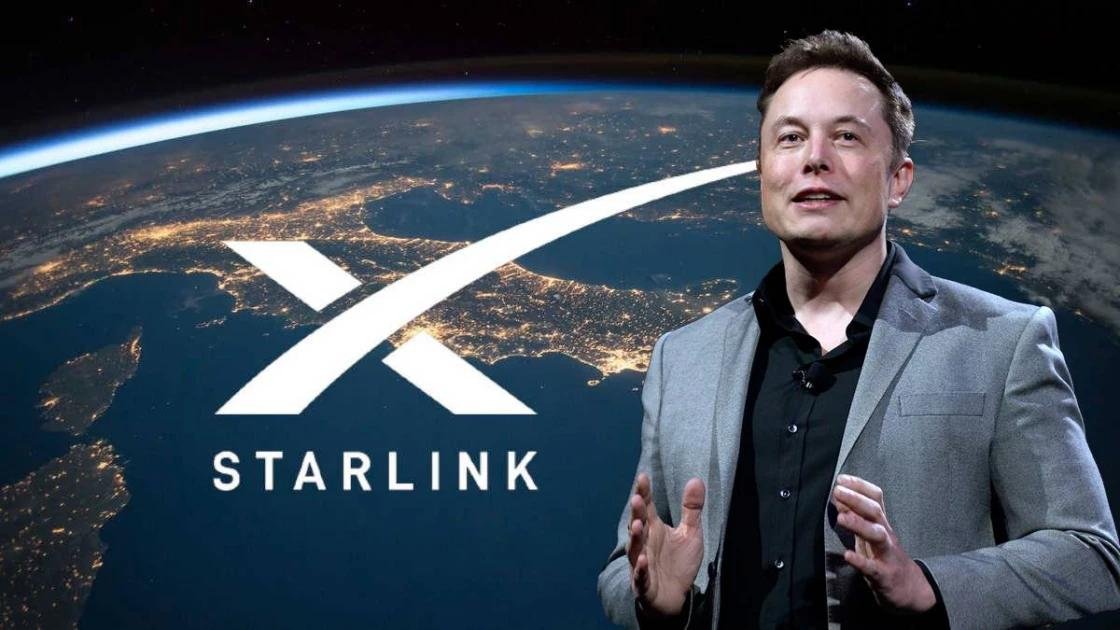Table of contents
Starlink license Lesotho
At a time when South Africa and other nations on the continent are rushing to award licenses to Starlink, the Kingdom of Lesotho has just taken a major step forward by granting this satellite service, owned by SpaceX, a ten-year operating license. The decision, announced by the Lesotho Communications Authority (LCA), marks a significant step forward in the country's digital transformation and demonstrates the regulator's commitment to creating a competitive, transparent and forward-looking communications sector.
This news comes at a time when low-Earth orbit satellite technologies are emerging as essential solutions for bridging connectivity gaps, particularly in rural and underserved areas. Lesotho joins the list of Southern African countries adopting Starlink, alongside Botswana, Eswatini, Mozambique, Madagascar, Zambia and Zimbabwe, becoming the 22nd country on the continent to benefit from this technology.
A context of Digital Transformation and Strategic Investments
Connectivity Challenges in Southern Africa
Lesotho, a small landlocked kingdom in southern Africa, faces major connectivity challenges. In a country where traditional telecommunications infrastructures often struggle to cover the entire territory, the arrival of Starlink represents a breath of fresh air for digital transformation. By providing high-speed Internet coverage via a constellation of satellites in low-Earth orbit, Starlink improves access to digital services for rural populations, stimulating digital inclusion and local innovation.
The importance of infrastructure modernization
At a time when connectivity has become a pillar of economic development, Lesotho's granting of a ten-year operating license to Starlink represents more than just an administrative decision. It is a real lever for :
- Modernizing digital infrastructures : By integrating cutting-edge technology, Lesotho is equipping itself to improve its public services, communications networks and education systems.
- Stimulating the local economy Better connectivity facilitates the emergence of new businesses, encourages digital entrepreneurship and attracts foreign investment.
- Promoting social inclusion Widespread access to the Internet enables a larger proportion of the population to benefit from educational and professional opportunities.
Regulatory Process and License Conditions
A Revised Regulatory Framework to Integrate Satellite Technology
The Lesotho Communications Authority (LCA) has undertaken a comprehensive review of its regulatory framework to better integrate low-Earth orbit satellite technology. Starlink had submitted its application in April 2024, and the LCA recognized that existing regulations needed updating to meet the specifics of this innovative technology.
Highlights of the regulatory process :
- Public consultations The LCA organized consultation sessions with stakeholders, inviting all concerned to face-to-face meetings to gather opinions and foster constructive dialogue.
- Standards update : Following these consultations, a new regulatory framework was gazetted on January 31, 2025, enabling Starlink's license application to be formalized.
- Transparency and collaboration The process was transparent, with broad public and expert participation, reinforcing the credibility of the final decision.
License Conditions
The ten-year operating license granted to Starlink in Lesotho is subject to strict conditions designed to guarantee the safety and efficiency of the service:
- Compliance Commitment Starlink must comply with national and international cybersecurity and data protection standards.
- Monitoring and Audit LCA reserves the right to carry out regular audits to verify compliance and service quality.
- Terms of Service The license allows Starlink to provide Internet services to individuals and businesses in a regulated and competitive environment.
Starlink's adoption in Southern Africa: a movement of funds
A Continent in Motion
Lesotho is not alone in this adventure. Several Southern African countries have recently adopted Starlink, reflecting a strong regional trend:
- Botswana, Eswatini, Mozambique, Madagascar, Zambia, Zimbabwe These nations, among others, have recognized the importance of quality connectivity for their development.
- Competitive advantage By integrating Starlink, these countries are creating a modern infrastructure capable of meeting the demands of a global digital economy.
Economic and social impact
The adoption of Starlink will have a significant economic and social impact:
- Job creation The project is expected to generate numerous jobs in the construction, infrastructure maintenance and digital services management sectors.
- Improving public services : Better connectivity encourages the digitization of public services, facilitating access to education, healthcare and administrative services.
- Stimulating local innovation Modern infrastructure encourages the development of start-ups and innovative initiatives, boosting regional competitiveness.
The Challenges and Risks Associated with the Use of AI and Satellite Technologies in Elections
Although the Starlink project in Lesotho is focused on improving connectivity, it also raises important concerns in the context of elections and digital transformation, particularly with regard to the use of artificial intelligence for surveillance and disinformation.
Cybersecurity Risks
- Cyber attacks on infrastructures Data centers and communication systems need to be protected against potential attacks, including DDoS attacks and malicious intrusions.
- Privacy Policy With the expansion of connectivity, the massive collection of personal data must be rigorously supervised to avoid breaches of confidentiality.
Disinformation and Manipulation of Public Opinion
- Spreading Fake News The ease with which information can be disseminated via social networks makes the electoral process vulnerable to misinformation, which can unduly influence voters.
- Influence of AI Algorithms : Using AI to personalize advertising and political content can create filter bubbles, limiting the diversity of viewpoints and reinforcing existing prejudices.
Protection and prevention measures
In the face of these risks, it is imperative that authorities and private sector players implement robust cybersecurity measures and strategies to combat misinformation :
- Implementing Advanced Security Protocols : Use of encryption technologies, sophisticated firewalls and intrusion detection systems.
- Regular Audits and Tests : Intrusion tests and security audits to ensure infrastructure resilience.
- Awareness campaigns Inform the public and institutional players about the dangers of misinformation and how to check the veracity of information.
The Importance of Responsible Digital Transformation
Towards Sustainable Modernization
The award of the Starlink license to Lesotho represents not only a technical breakthrough, but also a catalyst for the region's digital modernization. By facilitating high-speed Internet access, the project paves the way for increased digitalization of public and private services, essential for economic and social development.
A Regulatory Environment to Foster Innovation
The rigorous regulatory review process implemented by the Lesotho Communications Authority (LCA) demonstrates the importance of adapting the legal framework to new technologies. This proactive approach makes it possible to :
- Guaranteeing safety and transparency operations.
- Encouraging innovation while preserving system integrity.
- Ensuring healthy competition in the telecommunications sector.
This regulatory approach is a model that could inspire other African countries in their transition to a modern digital economy.
Looking ahead: Long-term impacts and opportunities
Economic Transformation and Job Creation
The integration of Starlink into the digital landscape of Lesotho and Southern Africa offers considerable economic opportunities:
- Direct and indirect job creation : The construction and operation of data centers, semiconductor production and infrastructure maintenance generate a large number of jobs.
- Stimulating local innovation : Improved connectivity encourages the emergence of start-ups and innovative projects, contributing to regional economic growth.
Reducing the Digital Divide
By improving access to Internet in rural areas and isolated areas, projects like Starlink are helping to bridge the digital divide, giving a larger proportion of the population access to essential services:
- Online education : Facilitate access to educational resources and online courses.
- Telemedicine Improving the quality of healthcare through remote diagnosis and treatment.
- Electronic commerce Stimulate entrepreneurship by giving local businesses direct access to global markets.
A Challenge for International Competitiveness
On a global scale, investment in infrastructure AI and satellite connectivity has become a major strategic challenge. Lesotho's adoption of Starlink is part of a regional drive to boost the digital competitiveness of African countries. At the same time, international competition is intensifying, and countries that invest early in these technologies gain a lasting advantage over their competitors.
Conclusion: Building the Digital Future Collectively
The recent decision by the Lesotho to grant a ten-year operating license to Starlink represents much more than a simple administrative act; it embodies a major transformation in Southern Africa's digital landscape. The project, which promises improved connectivity, modernized infrastructure and economic stimulation, also poses challenges in terms of cybersecurity and the regulation of misinformation.
For this transition to succeed, it is imperative that all stakeholders - from regulators to private sector players - adopt a proactive and collaborative approach. Digital modernization is not just about adopting new technologies, but also about putting in place robust security and transparency mechanisms to ensure that innovation serves the common good and strengthens citizens' trust.
At a time when technology is evolving at breakneck speed, countries and organizations need to prepare today for the challenges of tomorrow. Lesotho's initiative is a strong signal, a call to action for all those who want to build a secure, inclusive and prosperous digital future.
FAQ - Frequently asked questions
1. Why has Lesotho chosen to license Starlink?
The decision aims to modernize digital infrastructures, improve connectivity in remote areas, and stimulate economic innovation in the region.
2. What economic benefits are expected from this project?
The project is expected to generate thousands of jobs, attract foreign investment and stimulate local business development through improved connectivity.
3. What security measures will be put in place to protect data?
The license imposes strict cybersecurity obligations, including data encryption, regular audits and ongoing infrastructure monitoring.
4. How will this project help reduce the digital divide?
By providing high-speed Internet coverage, even in rural areas, the project will enable more people to access educational, health and commercial services online.
5. What are the long-term prospects for Southern Africa thanks to Starlink?
The integration of this technology could transform the telecommunications sector, boost regional competitiveness and act as a catalyst for other digital innovations.





